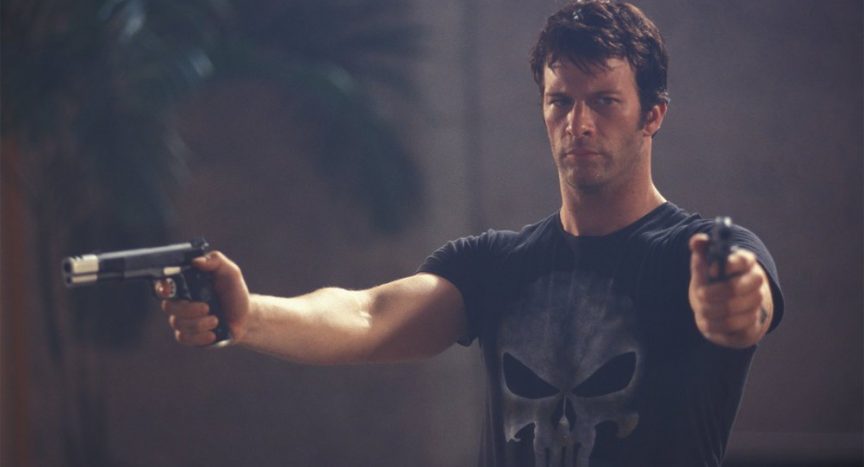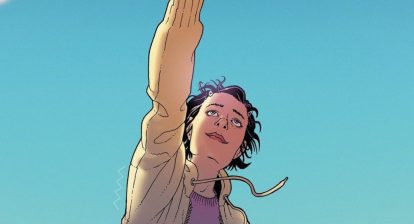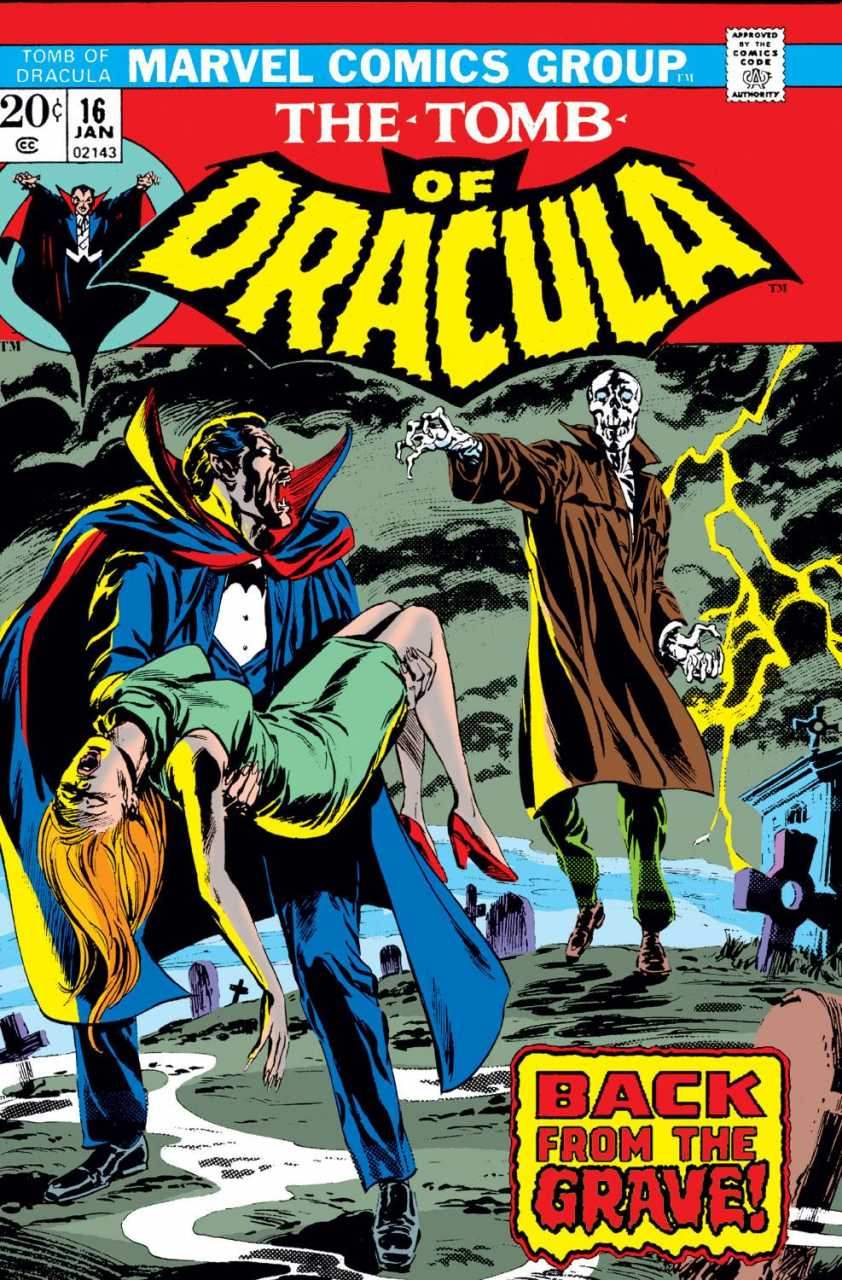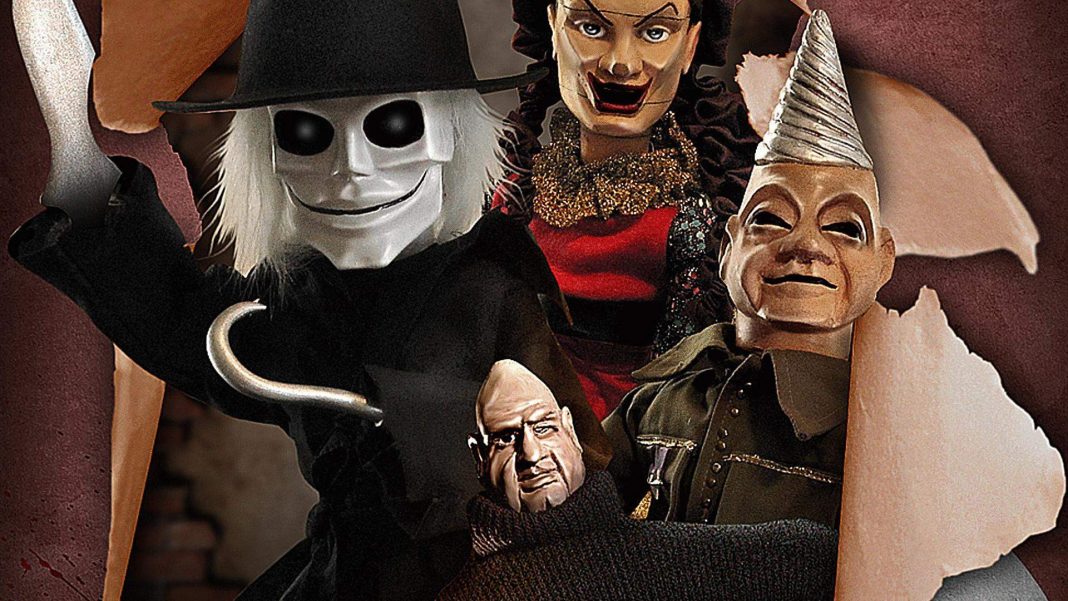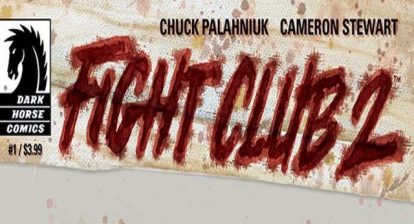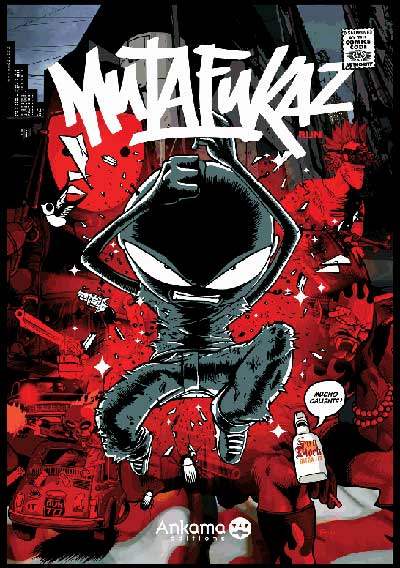Thomas Jane is well known to genre fans as the star of the 2004 film, The Punisher. But Jane doesn’t just portray characters from comics onscreen. He is also making a name for himself as the creator of comic books. First, through his Raw Studios label, and more recently through his production company, Renegade Entertainment. His earlier efforts include Bad Planet and Alien Pig Farm. While, more recently, Jane has teamed with Aftershock Comics for the forthcoming werewolf series, Lycan.
Wicked Horror was fortunate enough to sit down with the actor, director, producer, and comic creator to discuss the influences behind the upcoming book, the allure of pre-code comics, and his famous turn as Frank Castle. Read on for the full exchange and be sure to keep an eye out for Lycan in the first half of 2022.
Wicked Horror: In the press release for Lycan, you mentioned that this is a story you’ve been wanting to tell for a long time, which begs the question: Was this your original idea?
Thomas Jane: I had a company called Raw Studios, which still exists, where we produced several comic books and graphic novels. This one was one that I had developed with a writer named David James Kelly, who actually brought me the idea, which I thought was great. It’s basically Aliens, the James Cameron film, but set in a medieval castle in the late 1700s with werewolves. Really fun idea. It’s got some big game hunters who have a ship full of cargo, live animals they are bringing back from Africa. They get shipwrecked on the British Isles. And end up tangling with the local lord there who has a werewolf problem. They agree to fix the ship as long as the big game guys kill the wolf. And there’s nuns. I’ve always been a werewolf fan since I saw The Howling as a kid. That movie really did it for me and my friends. I’ve always wanted to do a really good werewolf story. Most of them, I havent really taken to after The Howling. Of course, there’s the great, what’s the one with the guy running around on the Moor that the great director did?
WH: Are you thinking of An American Werewolf in London?
Thomas Jane: I sure am. That film ads sort of a sense of humor to awesome werewolf transformations and it’s just top notch. So, this guy we developed with, David James Kelly came up with a pretty good outline for the story. And then worked on it with a couple of different writers but I couldn’t get the script I was looking for until IU sent it to Mike Carey, who is based out of London. He just had the right sort of European sensibility to do this story and nail the characters. He wrote the script ten years ago, I’m guessing. It was probably 2012 when Mike wrote the script for it. What’s great about doing comics is that you’re casting all the roles. You’re casting the artist, the colorist, the letterer, right down to the paper you choose to print on. It’s all a creartive decision. So, for this book, because it takes place in the late 1700s, I was inspired by Franklin Booth. The art, the great linework, the great pen and ink work of Franklin Booth. Bernie Wrightson is a comic genius. One of my favorites and an old friend until he died. I was looking for an artist that could nail that style, which is labor intensive. It takes longer than it would a normal comic but the result is a beautiful book that’s worthy of printing oversized and really admiring the art. So, I found that in another Englishmen named Sean O’Connor. But Sean was only able to do an issue and a half for me, which is really sad because his work was just phenomenal. He was giving us exactly what we wanted. You know, aritsts are temperamental. For one reason or another, Sean O’Connor pulled out of the project. He probably felt it was a little overwhelming. The book sort of languished in my desk for a number of years until I started this company called Renegade Entertainment with my partner Courtney Lauren Penn. We set up a television show with one of the major streamers that I can’t say because we’re getting ready to announce it. We put a western together last year. We were able to do a vampire movie called Slayers that we’re producing that should come out this year. I think MGM picked it up.
We’ve had a lot of great success. So, I sent Courtney this script for Lycan and she thought it was fantastic. Because we’re so busy on the film and television side, I no longer have the time to fully manage a comic book. So we hooked up with Joe Pruett from Aftershock. He fell in love with the project as well and we actually spent a long time putting together the contract. Joe was tenacious. He wouldn’t let it go. So, we eventually were able to make a deal and now we’re going to coproduce with Renegade and Aftershock. Right now, as we speak, we’re searching for an artist that can nail the Thomas Yeates/Bernie Wrightson/Gary Gianni feel that is necessary to bring this book to life. Maybe one of your readers will know the right person and turn us on to it. It’s really neat. We’re in the process of casting the artist right now.
Also See: Seven Modern Horror Movies That Should Transition to Comics
WH: You mentioned the sense of humor of American Werewolf in London, which makes me wonder if you, as someone who has demonstrated a knack for comedy when given the chance, will inject some of your humor into the comic? Or will you be playing it completely straight?
Thomas Jane: We always like to find room for humor. I’m a big believer in humor, especially in dramas and horror movies. You have to have that release valve. It’s not a comedy. It’s a gothic werewolf story with castles and soldiers and nuns. But we certainly find room for some humor in the book and our characters are pretty lively.
WH: I think it can be a little cathartic to have a laugh here and there if the subject matter is especially heavy.
So, one thing I find really interesting about classic monsters like werewolves and vampires is that creators can pick and choose which tropes to conform to, as well as creating their own mythology. Will there be anything noteworthy about the werewolves that may separate
Thomas Jane: There’s a balance between respecting the mythology and playing with it to sort of make something unique or perhaps more realistic. But we’re sticking with the silver. Silver and werewolves just don’t go together. So, we like that. The mythology of our particular wolves is a little bit unique. There’s a story behind what makes a werewolf and we certainly dig into that. I love the idea of respecting the mythology that’s important to the creation of a werewolf. There’s a couple of different directions you can go and still respect the mythology.

WH: It seems like a lot of the output that you’ve been involved with either through RAW Comics or Renegade have been horror-centric. I’m curious if that’s a sweet spot for you as a comic fan?
Thomas Jane: I’ve got a fantastic collection of 1950s pre-code horror comics that I’m very proud of. The comic code was implemented in the mid-‘50s, mostly because of McCarthyism, where they started attacking comics as being a hot bed of juvenile delinquency. But before that, there are some really great books and covers. They were ghastly. One of my favorites is Black Cat #50. It’s got a guy melting from reading it. His whole face is melting off. His hands are melting. You can see his bones. These are the kind of things that really got parents up in arms. Horrific Comics #3 has a shot of a guy with a bullet in the middle of his forehead. His eyes are bulging out and his mouth is open and he’s not quite dead yet. I’ve got this collection of pre-code horror and they are the highlight of my comic book collection. They’re just beautiful imagery. Of course, the great EC Comics. Entertaining Comics, which started out as Educational Comics. Bill Gaines’ dad was making comics in the 1940s. Bill Gaines took over and changed it to Entertaining Comics and started a great line of horror. Tales from the Crypt, Vault of Horror and he also had some fantastic sci-fi and fantasy titles. These are some of the best stories that even hold up today. I’ve got a few issues of the early MAD Magazine, which the first few issues of were actually a comic.
I’m especially attracted to comics from the ‘50s. I think they really peaked at that time. Some of the great artists came out of that period. Whether it’s Wally Wood or Johnny Craig. The amazing airbrushed comics that Alex Schomburg did have all been destroyed. Nobody thought much of these things. So, after they printed the books, they would take them out to the dumpster. I guarantee that if any one of those ever turned up, it would go for a million bucks. The old airbrushed books that he did for Startling Comics are among my favorites. I’ve always had a fascination with horror and sci-fi stuff. We do that. But we’re about to start production on our second western in May. It’s called Murder at Immigrant Gulch. We wrapped production on our first western, which is called The Last Sun. It stars Sam Worthington. I like genre. Horror is great. Sci-fi. I’m looking for a good sci-fi project but I haven’t come across the right one yet. I’m a big fan of the genre. You’re right, it would be nice to get a good comedy going.
See Also: How One of the Best Horror Comics Became One of the Most Troubled Comic Book Movies
WH: Your Punisher is my personal favorite of the onscreen portrayals of the character. With that said, I wonder if you would speak to what makes your Frank Castle unique and sets him apart from the other actors that have tackled the role?
Thomas Jane: Thank you. I really like Jon [Bernthal’s] portrayal on Netflix. I think he looks like The Punisher. I just tried to find what’s human about Frank Castle. It’s a really terrific part. It reminds me of the old John Wayne stuff. To keep a society together and protected, sometimes you need guys who operate outside of society and are willing to basically break the rules and do the bad stuff that you shouldn’t have to do as a member of society. You’re essentially alienating yourself from the society that you have protected. So, in the process of saving society, you become an outcast from that society and will never be a part of it. And that’s sort of the ultimate price that you’re willing to pay in order to keep people safe and so that they don’t have to go to bed at night with the memories of having done some really awful stuff. And that kind of character has always appealed to me and fascinated me. I love those characters in film and exploring that idea was why I wanted to do The Punisher and why we did the ten-minute short called Dirty Laundry, which you can find on YouTube. I like the realistic side of the story. It’s not really a superhero story. It’s a story about reality and the underbelly of what makes us human. I’m always looking for another story like that to tell.
WH: That’s a great answer. Thank you for that. I love getting into an actor’s head to hear what went into crafting a performance.
My last question for you is in regards to Jon Bernthal on the Netflix Punisher series. You mentioned in a recent interview that you would be interested in directing him in a Frank Castle project. Having played the role yourself, what advice would you have for him as a director?
Thomas Jane: I’d tell Jonny to get a lot of sleep because he’s gonna work his ass off. It’s a punishing role. There’s a lot of action and you gotta be ready for that. It was one of the most exhausting experiences, shooting The Punisher. I just directed an episode of The Expanse. I really had a blast with that. I got to hone my chops on that. And I really look forward to directing again. It’s something that I’m moving toward in my career. This year, I’m really busy but next year, I plan on getting something off the ground and getting behind the wheel again. I really look forward to working with the actors. After you’ve been acting for twenty-five years, it’s really great to be able to work with actors in a directorial capacity. We speak the same language and get to fill that gap between actor and director. Unfortunately, all too often, directors aren’t quite as familiar with the language of acting as you would like them to be. But they are certainly out there.
